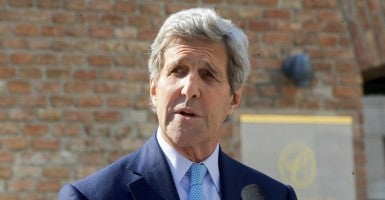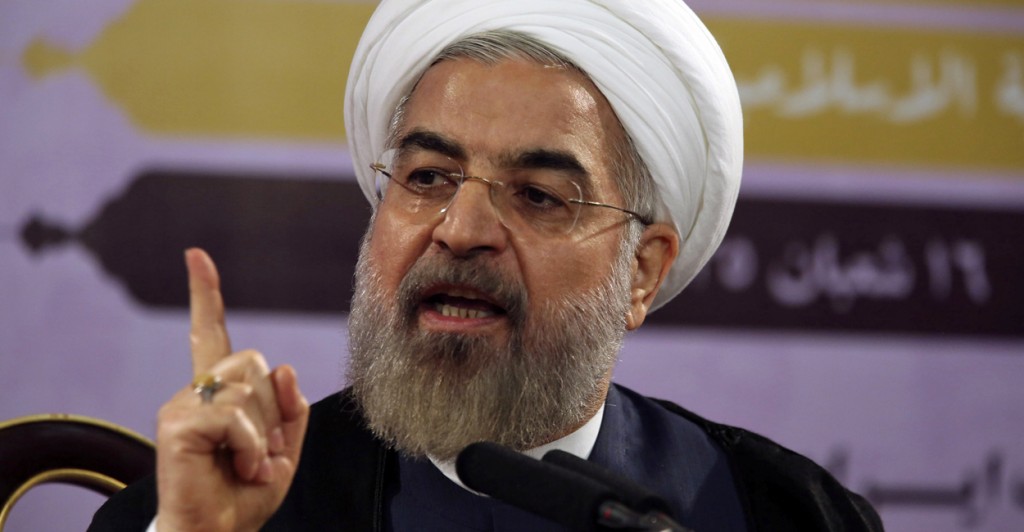Iran and six world powers extended negotiations over Tehran’s nuclear program Tuesday, blowing through another deadline as diplomats struggle to notch a final agreement.
The U.S. State Department confirmed early in the day that talks would continue into the end of the week as key points regarding the containment of Iran’s nuclear program remain in dispute.
This is now the fourth deadline extension since an interim deal was struck in April.
On Tuesday, experts critical of the nuclear negotiations discussed the implications for the current talks during a panel event at The Heritage Foundation.
“This has not been a matter of compromise—the give and take of normal diplomatic negotiations,” said Ambassador Robert Joseph, former under secretary of state for arms control and international security. “This is a matter of concession on both the major and minor issues being negotiated.”
The long-standing goal of a deal is to prevent Iran from achieving a nuclear weapons capability in exchange for sanctions relief.
Under the interim deal, instead of eliminating Iran’s centrifuges—machines that enrich uranium used in nuclear bombs—Iran can still maintain about 6,000. Though the machines must be disconnected for 10 years under the current framework deal, Iran may be permitted to continue research and development of advanced centrifuges that would purify uranium faster, accelerating the time it would take to build a bomb.
“Instead of holding the line on those key issues that would actually determine whether the agreement was good or bad or whether it advances U.S. security interests or undermines them, the [Obama] administration has made concession after concession and the consequences are profound,” Joseph said.
Jim Phillips, an expert on the Middle East at The Heritage Foundation, warned that a deal allowing Iran to continue building its ballistic missile force while permitting it to preserve much of its nuclear structure could accelerate nuclear proliferation in the region, leading to an arms race among neighboring countries.
Saudi Arabia has already announced it would seek nuclear capabilities if Iran is permitted to maintain theirs under the deal, and Phillips predicts Turkey, Egypt, and others in the region will follow, creating a multipolar Middle East further destabilizing the region.
“We have lost any ability to influence and to shape what’s going on in the region,” said Michael Doran, a senior fellow at the Hudson Institute.
“It makes our allies wonder if they’re in a pinch with Iran, will the U.S. actually be by their side. To watch the U.S. whittle down its own position on its own vital interests instills a feeling that when it comes to [the U.S.’ allies] vital interests, they’re going to be even more inclined to whittle things down.”
To push Iran to restrict its nuclear program, the P5+1—the U.S., France, Germany, Britain, Russia and China—have agreed to lift sanctions, giving Iran billions of dollars in economic relief.
A key sticking point in negotiations is deciding when Iran would earn sanctions relief—if it occurs when an agreement is signed, or after Tehran has complied with other components of the deal.
Phillips called the sanctions concessions an “economic shot in the arm,” claiming it strengthens one of the most “hostile and dangerous” regimes in the Middle East.
“I don’t think this administration is capable of correcting the mistakes it’s already made in coming up with logical, coherent negotiating position that could produce an acceptable agreement,” Phillips said. “I think we need to walk away from the table and let economic forces take their course on Iran.”
Joseph said if the agreement makes it to congressional review, legislators should deny the deal if it remains as is and ensure legislative sanctions would remain in place.
The State Department set the new deadline for a deal to July 10.
If a final agreement is not submitted to Congress by July 9, lawmakers would have 60 days to review the deal—a longer window than the 30-day review period required if a deal was struck before then.
U.S. officials fear the extended review time will provide an opportunity for the deal to fall apart.
































